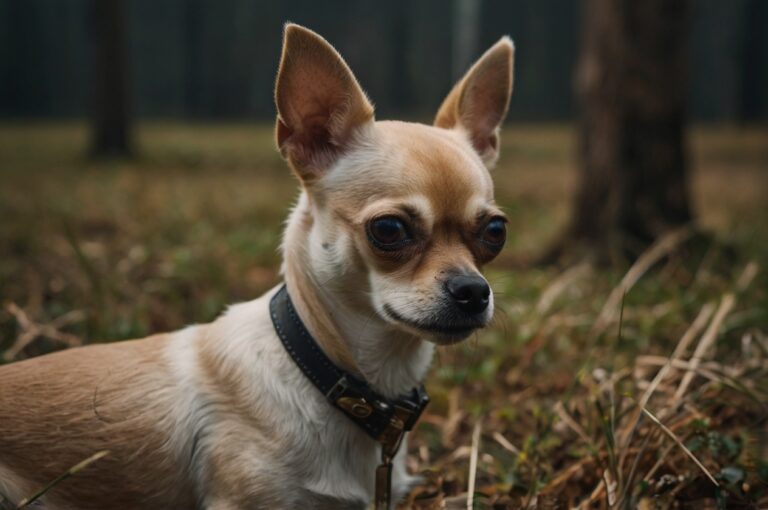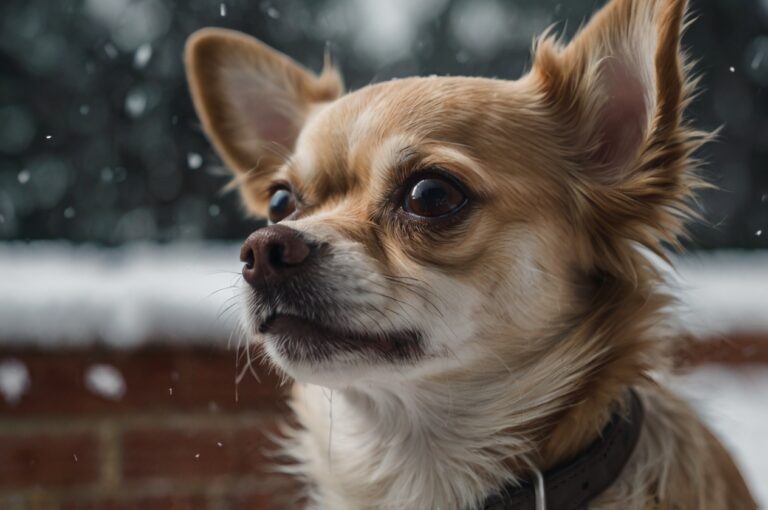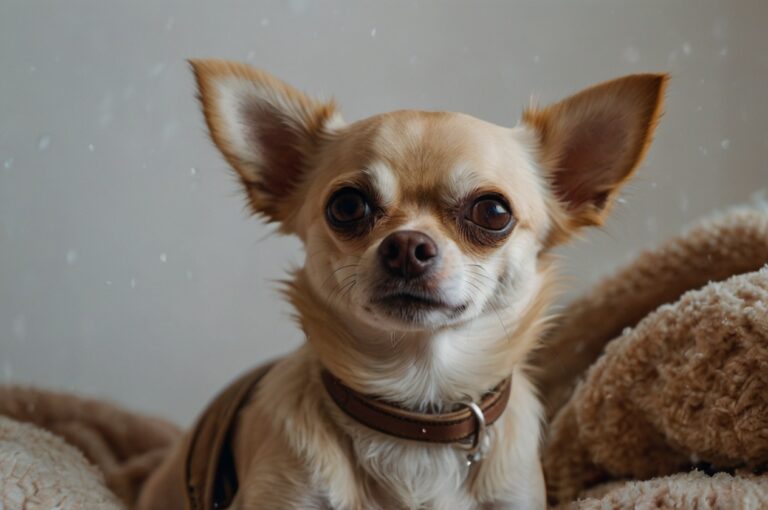Understanding the Chihuahua’s Temperament and Personality Traits
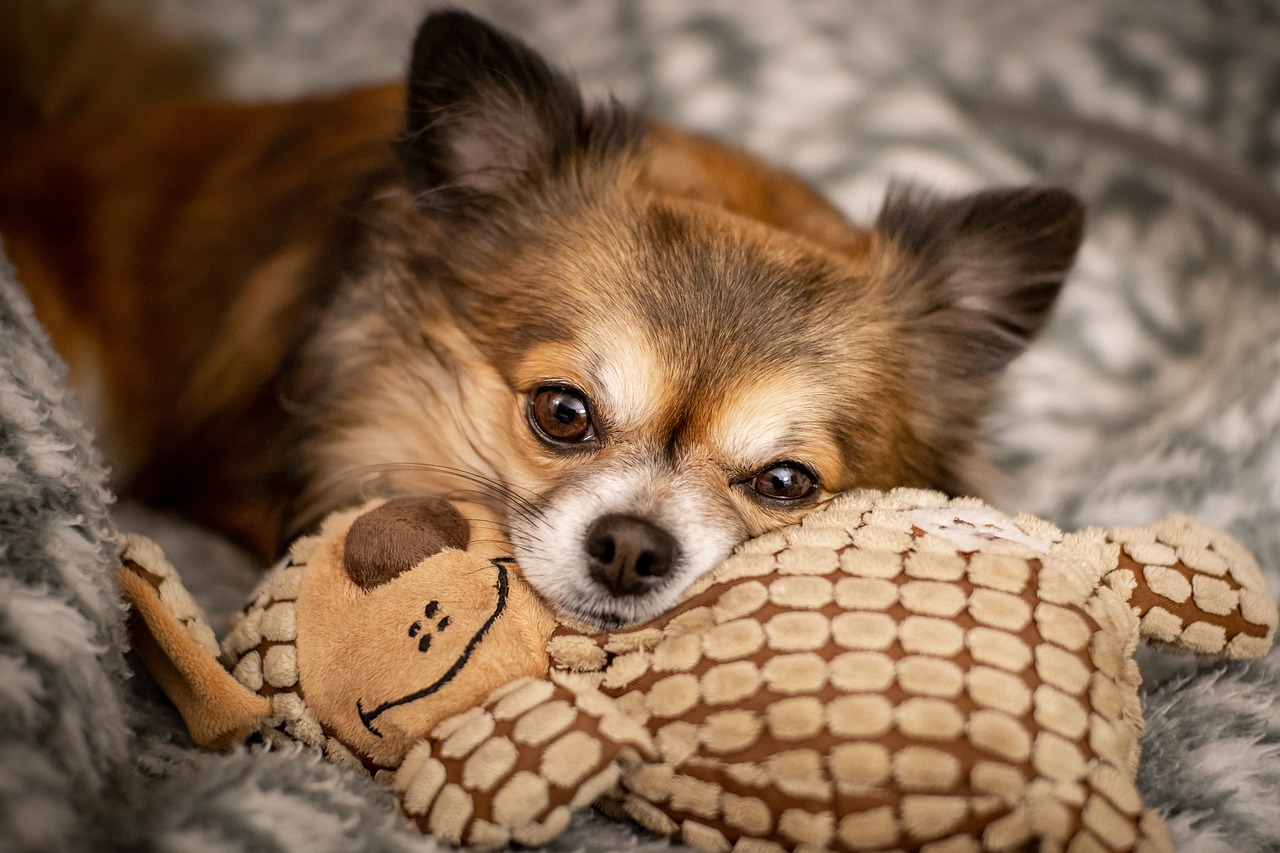
Chihuahuas may be small, but their personalities are anything but. Known for their confidence, boldness, and strong attachment to their owners, Chihuahuas have a distinctive temperament that sets them apart from other breeds. Whether you’re a new Chihuahua owner or just curious about these feisty little dogs, understanding their temperament and personality traits will help you better care for and bond with them.
In this guide, we’ll explore the key characteristics that define a Chihuahua’s temperament, from their courageous nature to their role as loyal watchdogs, and provide insights into how they interact with others.
1. Key Characteristics of a Chihuahua’s Temperament
Chihuahuas are full of personality, often surprising their owners with their boldness and confidence despite their tiny stature. Understanding the fundamental traits of their temperament can help you anticipate their behavior and provide the support they need to thrive.
1.1 Boldness Despite Small Size
One of the most notable traits of a Chihuahua is their boldness. Despite their small size, Chihuahuas often behave as if they are much larger than they are, showing courage and confidence in various situations. They may be quick to bark at unfamiliar people, animals, or noises, a reflection of their fearless nature. This boldness can sometimes come across as aggression, but in many cases, it’s simply a display of their protective instincts and desire to defend their territory or owner.
Chihuahuas often take on the role of a watchdog, alerting their owners to anything they perceive as a threat. Their courage makes them excellent at this task, even though they are physically small. Owners must manage this bold behavior with proper training to ensure it doesn’t turn into excessive barking or defensiveness.
This confidence also means that Chihuahuas are not easily intimidated, and they may stand their ground when interacting with larger dogs or unfamiliar people, often surprising those who expect them to be timid due to their size.
1.2 Loyalty and Strong Attachment to Owners
Chihuahuas are incredibly loyal and often form deep emotional bonds with their owners. They are sometimes referred to as “velcro dogs” because of their tendency to stick close to their favorite person, often following them from room to room and wanting to be involved in everything they do. This intense attachment means that Chihuahuas often prefer to be around their owners and may become distressed when left alone for long periods.
Their loyalty also means they are extremely protective of their owners, which can lead to territorial behavior or jealousy when other pets or people come into the picture. They may bark or act out if they feel their owner’s attention is being diverted away from them. However, with proper socialization and boundaries, this protective instinct can be managed effectively.
Chihuahuas’ strong attachment to their owners makes them affectionate and loving companions. They thrive on human interaction and can be very cuddly and affectionate, often curling up on their owner’s lap or snuggling close during downtime.
1.3 High Alertness and Watchdog Instincts
Chihuahuas are naturally alert and vigilant, traits that make them excellent watchdogs despite their small size. They have a strong tendency to bark at anything unusual, whether it’s a stranger at the door, a new sound, or even changes in their environment. This high level of alertness stems from their protective nature and their desire to keep their home and loved ones safe.
While their watchdog instincts can be beneficial, they can also lead to excessive barking if not properly managed. Chihuahuas may become too reactive, barking at every small noise or movement. It’s important for owners to work on desensitizing their Chihuahua to non-threatening stimuli and to reinforce positive behavior through training.
| Chihuahua Temperament Trait | Description | How It Manifests |
|---|---|---|
| Boldness | Despite their size, Chihuahuas exhibit confident, fearless behavior | Standing their ground with larger dogs or reacting to perceived threats |
| Loyalty | Chihuahuas form strong bonds with their owners | Following their owner everywhere, sometimes showing jealousy |
| Watchdog Instincts | High alertness and vigilance make them excellent watchdogs | Barking at strangers or new sounds, protecting their home and owner |
2. Social Behavior: How Chihuahuas Interact with Others
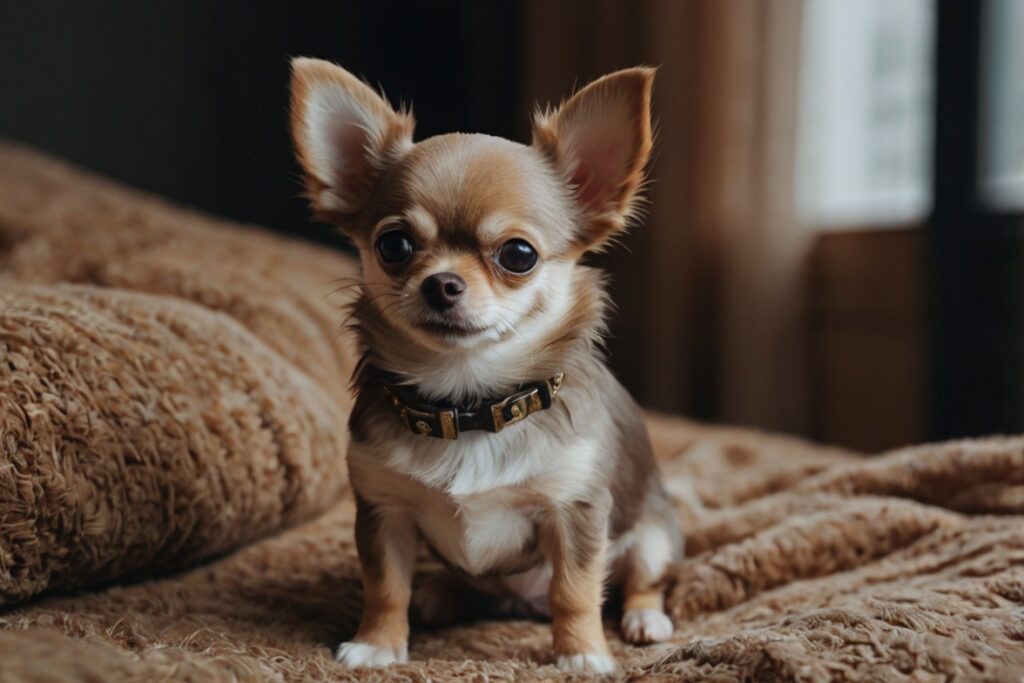
Understanding how Chihuahuas interact with other people and animals is crucial for managing their social behaviors. While they are loving toward their owners, their interactions with other dogs, strangers, and children can be more complex.
2.1 Interacting with Other Dogs
Chihuahuas often exhibit mixed behavior when it comes to interacting with other dogs. Some Chihuahuas may be assertive or even aggressive toward larger dogs due to their bold nature, while others may be more cautious or fearful. Their small size can make them vulnerable, which sometimes leads to defensive behaviors, especially if they feel threatened.
Proper socialization from a young age is key to ensuring that Chihuahuas interact well with other dogs. Introducing them to different dog breeds in controlled settings can help reduce fear or aggression and foster positive relationships.
In multi-dog households, Chihuahuas may become protective of their space or favorite person, which can lead to conflicts with other pets. It’s important to establish boundaries and ensure that each dog has its own space to prevent territorial disputes.
2.2 Relationship with Children and Strangers
Chihuahuas can be cautious or wary around strangers, often reacting by barking or avoiding contact. Their small size makes them more prone to feeling vulnerable, especially around unfamiliar people or young children who may not understand how to handle them gently.
While some Chihuahuas bond well with children, others may feel overwhelmed by the noise and energy that kids bring. It’s important to teach children how to approach and handle a Chihuahua gently and respectfully to avoid scaring or upsetting the dog. Supervised interactions and gradual introductions are key to building a positive relationship between Chihuahuas and children.
3. Personality Traits That Make Chihuahuas Unique
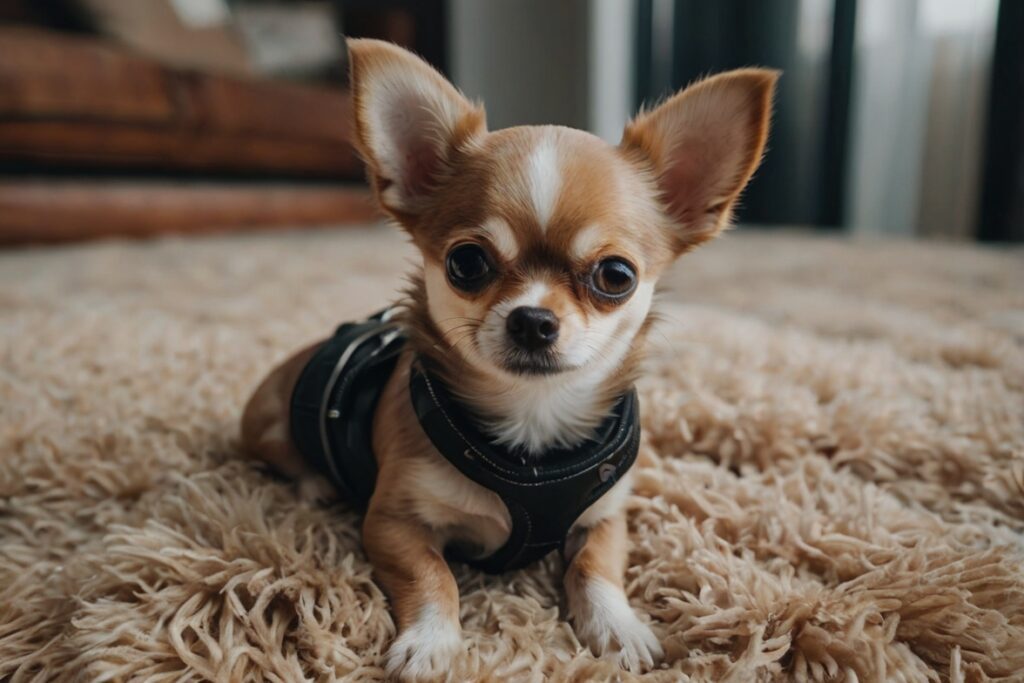
Chihuahuas have a variety of personality traits that make them stand out as companions. Their unique blend of playfulness, stubbornness, and sensitivity can make them both a joy to be around and a challenge to manage at times. Understanding these traits is key to developing a deeper bond with your Chihuahua and ensuring they are happy, healthy, and well-adjusted.
3.1 Playfulness and Energy
Despite their small size, Chihuahuas are often full of energy and can be surprisingly playful. They enjoy interactive games like fetch or tug-of-war, and many Chihuahuas maintain their playful nature well into adulthood. Their size makes them particularly well-suited for indoor play, and even in small living spaces, Chihuahuas can burn off energy with a good game of fetch or a run around the house.
Their playful behavior can sometimes come across as mischievous, especially if they are not getting enough mental and physical stimulation. Bored Chihuahuas might engage in destructive behaviors such as chewing on furniture or digging into blankets. Regular playtime and engagement are essential for keeping their energy levels balanced and ensuring they stay mentally stimulated.
Chihuahuas also love to play with toys, especially soft or squeaky ones, which allow them to satisfy their natural curiosity and energy in a fun way. Incorporating variety into their play routine can keep them entertained and prevent boredom.
3.2 Stubbornness and Independence
Chihuahuas are known for having a bit of a stubborn streak, which can make training them more challenging than with some other breeds. This independence is a hallmark of their personality and reflects their strong will. While Chihuahuas are intelligent and capable of learning commands, they may not always be inclined to obey immediately, especially if they don’t see the benefit for themselves.
Their independent nature can sometimes lead to selective listening, where they choose to ignore commands or training if they aren’t in the mood. This trait requires patience and consistency from their owners, as Chihuahuas respond best to positive reinforcement and short, engaging training sessions.
To manage their stubbornness, it’s important to establish clear rules and boundaries early on. Reward-based training techniques, such as using treats and praise, can motivate Chihuahuas to follow commands. Avoid using harsh corrections, as this can cause anxiety or reinforce negative behaviors in such a sensitive breed.
3.3 Sensitivity and Emotional Awareness
One of the most unique aspects of the Chihuahua’s personality is their high level of emotional intelligence. Chihuahuas are extremely sensitive to their owner’s emotions and can often sense when something is wrong. They tend to be particularly attuned to changes in their environment or their owner’s mood, responding accordingly. For instance, if their owner is feeling sad or stressed, Chihuahuas may try to comfort them by staying close or offering affection.
This emotional awareness makes Chihuahuas excellent companions for individuals seeking a close, emotionally supportive pet. However, their sensitivity also means they can become easily stressed or anxious if their environment changes drastically or if they are exposed to high levels of tension.
It’s important to provide a stable and calm environment for a Chihuahua to thrive. Consistency in routine and ensuring that their emotional needs are met can help maintain their well-being. Chihuahuas tend to form deep bonds with their families, and their emotional intelligence allows them to read body language and pick up on cues from their owners, reinforcing their close connection.
4. Nurturing a Balanced Temperament in Chihuahuas
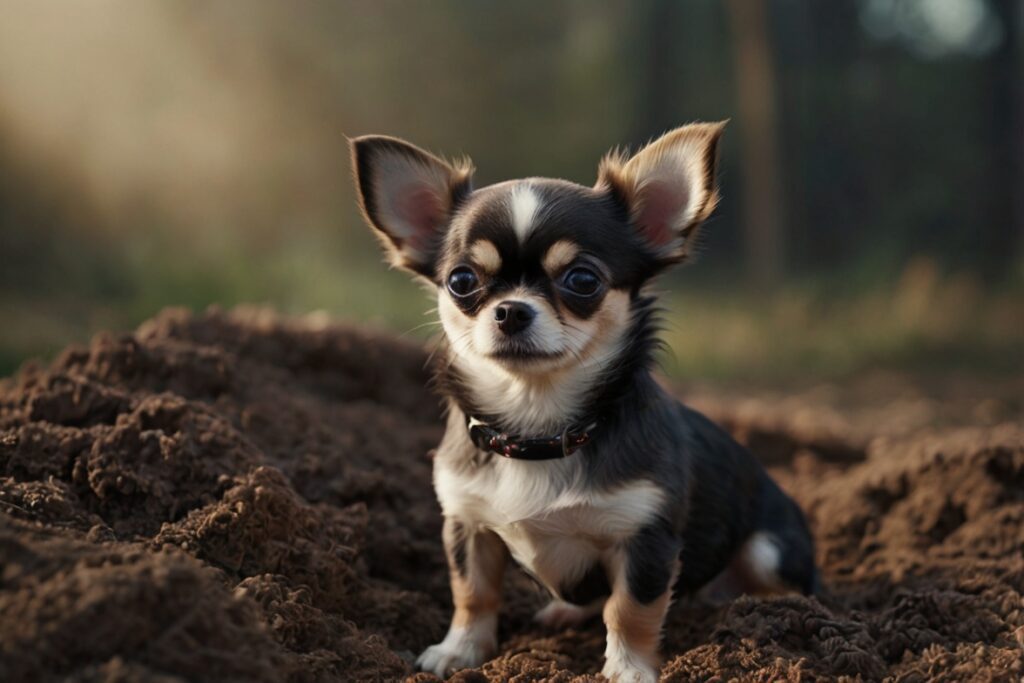
While Chihuahuas come with some inherent personality traits, their temperament can be shaped through proper training, socialization, and enrichment. A balanced temperament helps ensure that your Chihuahua is both well-behaved and emotionally secure. By focusing on early socialization, setting clear boundaries, and providing physical and mental stimulation, you can nurture a happy, confident Chihuahua.
4.1 Early Socialization and Exposure
The key to developing a balanced temperament in Chihuahuas is early socialization. Introducing your Chihuahua to a wide variety of people, environments, and situations during their puppyhood helps reduce anxiety and fear-based behaviors later in life. Socialization helps them learn how to interact positively with others and adapt to new experiences without feeling overwhelmed.
Start by gradually exposing your Chihuahua to new environments, such as parks, streets, or homes of friends and family. Encourage calm behavior by offering treats and praise when your Chihuahua handles new situations well. The more positive experiences they have early on, the more confident they will become as adults.
It’s also important to expose them to different sounds, surfaces, and other animals in a controlled, positive manner. This reduces the likelihood of developing fear-based aggression or territorial behaviors as they mature.
4.2 Consistent Training and Boundaries
Chihuahuas, like all dogs, benefit from consistent training and clear boundaries. Due to their small size and sometimes strong-willed personality, it can be tempting to let certain behaviors slide, but this can lead to larger issues down the road. Establishing a routine and setting firm, yet gentle, rules helps your Chihuahua understand what is expected of them.
Positive reinforcement, using rewards such as treats or praise, is one of the best ways to train a Chihuahua. Be patient, as they can be stubborn, but consistency is key. Short, fun training sessions work best, as Chihuahuas may lose interest in long, repetitive exercises.
Setting boundaries also includes managing territorial behavior. If your Chihuahua tends to guard their space or become possessive of their owner, it’s important to address these behaviors early. Ensure they understand that sharing space with others is safe and that they do not need to be overly protective.


